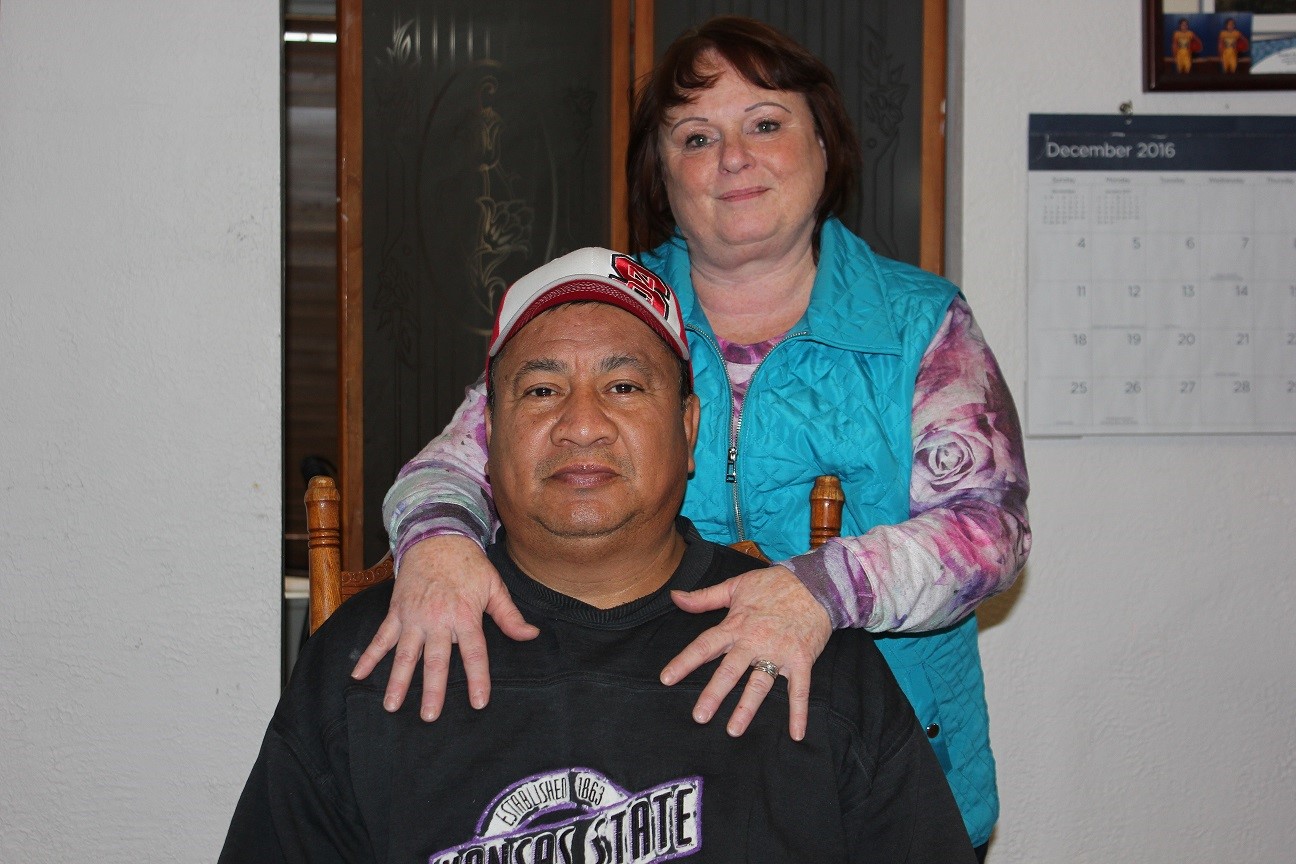They have just two rules: You must go to school, and you must work. If you do those two things, you can stay. If you don’t, you must go. It’s as simple as that. The other stuff – your age, ethnicity, legal troubles, past mistakes – doesn’t matter. Follow those two rules and you’ll have a fighting chance. Follow those rules, and Ambrosio and Patsy Balderas will have your back for as long as you need them.
“I don’t care what you did in your past,” says Patsy. “I’m not proud of it, but I also did a lot of stupid things when I was a kid. Everybody deserves a new beginning. I don’t need to know what you did to get here, but I can tell you where you’re going from this point on.”
In 2009, the Garden City, Kansas, couple lived through the most boring, depressing six months of their 35-year marriage. Both their sons had grown and gone, along with two nephews they’d helped raise. What once had been a noisy, vibrant house filled with boisterous neighborhood teens, fell quiet. Ambrosio and Patsy spent many evenings staring at each other across the room in silence.
One day, Ambrosio rushed into the house brandishing a newspaper clipping. Excited, he said to Patsy, “They’re giving kids away, and they’re going to give us some.”
“I looked at the article and said, ‘You know it doesn’t really work that way, right?’ He said, ‘You just call them. They’re going to give us some kids.’”
The story was about Juvenile Justice Foster Care (JJFC), a special kind of foster care for young people who’ve made poor decisions. Youth in JJFC are in the custody of the Kansas Department of Corrections (KDOC) for engaging in illegal activities and behaviors. Working with KDOC, the courts, the Kansas Department for Children and Families, and Saint Francis Community Services, Juvenile Justice foster parents give young people ages 10-22 a chance to turn their lives around. Foster parents like Patsy and Ambrosio are specially trained to provide the structure, guidance, and skills that troubled youth need to get back on a productive path. It’s a difficult job, and it takes tenacity to do it well.
“Most of the kids we place with them won’t be going back home to reintegrate,” said Vanessa Roybal, JJFC program manager. “They’re typically kids who are going to age out and then live on their own. Patsy and Ambrosio do an excellent job of preparing kids for life by teaching them job skills and pushing them to get their education. Patsy makes it clear from the beginning that education is their first priority, then working, and then getting out on their own. Their home is our most successful with that age group.”
“I tell them they can work for money or they can work for free,” says Patsy. “They can do community service or get a job. If they don’t have a job, we’ll find one for them. Either way, they’re working.”
For some, that has meant employment at the Tyson Foods plant in Garden City, where Patsy and Ambrosio both work full-time. Patsy is a superintendent at the plant and has helped 11 of their foster kids get jobs there once they aged out. Seven still work there. And Ambrosio knows virtually every restaurant manager in town.
“I started by going into Burger King and telling the manager that we take care of kids, teenagers, and asked if he had any openings,” says Ambrosio. “He said ‘Bring me all you have.’ Now, all the restaurant managers know me by name. I’ve asked them to call me if they have trouble with any of the kids so we can try to work it out. And they do. They let me know.”
He also teaches them life skills like how to properly sweep a floor, wash dishes, clean house, use tools, and cook on a budget. Their kids learn through instruction and by example. They soon learn that Patsy and Ambrosio are on their side, and that they will settle for nothing less than each kid’s success. Working with Roybal and her staff of two JJFC case coordinators, Patsy helps foster youth find a place to rent and get the documentation they need to live independently. She says it’s surprising how many kids in JJFC don’t have a birth certificate, social security number, or photo ID. She makes sure they’ve paid their debts and learned to budget their money.
“We’ve been lucky,” says Patsy. “By the time they leave, I’d say at least 50 percent of our kids have paid their fines and saved enough money to go out on their own. They’re not perfect, they make mistakes. But you can say the same about any kid. They become like our own, and we celebrate their success. Most of ours have also graduated from high school. Let me tell you, there’s nothing like seeing a kid walk down that aisle to get that diploma. If that’s the only reason I do this, it’s worth every minute.”





